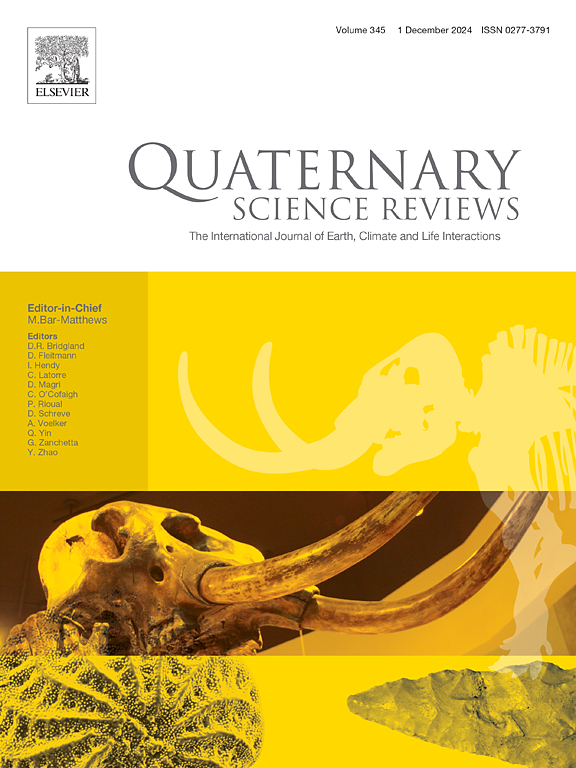Decoding climate cycles from the Red Clay sequence on the Chinese Loess Plateau
IF 3.2
1区 地球科学
Q1 GEOGRAPHY, PHYSICAL
引用次数: 0
Abstract
The loess-Red Clay sequences on the Chinese Loess Plateau (CLP) are encoded with past variations of East Asian monsoons. In comparison with the loess sequence, the Red Clay sequence has lower dust accumulation rate, older depositional ages and was deposited in a warmer climate. These factors result in stronger degree of mineral oxidation, lower content of fine ferrimagnetic minerals and higher content of hematite. Therefore, magnetic parameters widely used in the loess sequence, such as magnetic susceptibility, may not be as effective in indicating past precipitation in the Red Clay sequence. It is notoriously well known that Red Clay lacks precessional cycles, the most obvious period dominating summer insolation. Here we explore the potential of “hard’’ isothermal remanent magnetization (HIRM), a parameter estimating hematite content, in recording past climatic changes in the Red Clay sequence. In contrast with the magnetic susceptibility record which only shows prominent 1 Myr and eccentricity cycles, the HIRM record shows all orbital and their harmonic cycles. Intriguingly, we also detected multiple millennial cycles from HIRM and found the amplitude variations of multiple millennial cycles are controlled by precession, obliquity, and their amplitude modulators. This work extends detecting of precession and multiple millennial cycles from the CLP deposits back to the late Miocene for the first time and revolutionize our thinking regarding how East Asian summer monsoons varied based on the CLP records for the late Miocene-Pliocene interval.
求助全文
约1分钟内获得全文
求助全文
来源期刊

Quaternary Science Reviews
地学-地球科学综合
CiteScore
7.50
自引率
15.00%
发文量
388
审稿时长
3 months
期刊介绍:
Quaternary Science Reviews caters for all aspects of Quaternary science, and includes, for example, geology, geomorphology, geography, archaeology, soil science, palaeobotany, palaeontology, palaeoclimatology and the full range of applicable dating methods. The dividing line between what constitutes the review paper and one which contains new original data is not easy to establish, so QSR also publishes papers with new data especially if these perform a review function. All the Quaternary sciences are changing rapidly and subject to re-evaluation as the pace of discovery quickens; thus the diverse but comprehensive role of Quaternary Science Reviews keeps readers abreast of the wider issues relating to new developments in the field.
 求助内容:
求助内容: 应助结果提醒方式:
应助结果提醒方式:


